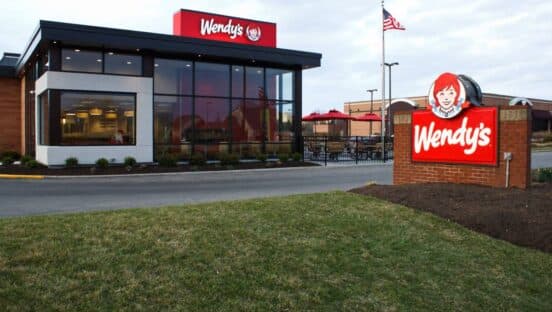Legacy ice cream company Oberweis Dairy declared bankruptcy earlier this month. It announced the closure of its manufacturing plant in North Aurora, Illinois, and layoffs for almost 130 employees. The next step is finding a buyer to take on the struggling company.
The business, which manufactures, packages, and distributes milk, ice cream, and other dairy and non-dairy foods, consists of 40 retail stores, direct-to-doorstep home delivery, and sales in grocery outlets. It originated 109 years ago when Peter Oberweis began selling milk to his neighbors out of the back of a horse-drawn wagon. Responding to growing demand, the operation was formalized in 1927 and has been continuously owned by four generations of family.
The first counter-service location opened in 1951, followed by another in 1991. Expansion steadily rose afterward. Annual revenue grew from $63 million in 2007 to more than $95 million in 2023, including the introduction of sister businesses That Burger Joint and Woodgrain Pizzeria. But much of that revenue was eaten up by high costs.
Oberweis has faced financial struggles in recent years, driven in part by consumers’ shift away from conventional milk products and the growing popularity of alternatives like plant-based, high-protein, and extended-shelf-life products.
At the same time, the company admittedly misused capital by focusing on its distribution capacity instead of manufacturing, which left it unable to manage through decreasing sales. It also relied on inexperienced management and poorly maintained books and records, including the adjustment of standard costs; this left leadership with an inaccurate understanding of labor and overhead expenses. Additionally, Oberweis failed to establish broker relationships that could result in national grocery partnerships, attempted to enter markets in Asia, began using amber-colored bottles in grocery stores (to which customers did not respond well), overspent on marketing, and made improper deals with vendors.
The chain attempted to mitigate its financial issues by hiring a consultant, cutting millions in annual operating costs, substantially reducing its headcount, selling and consolidating certain delivery routes, obtaining more capital contributions from members and shareholders, and selling equipment. But the attempts “merely postponed [Oberweis’] inevitable deterioration,” president Adam Kraber wrote in a court filing.
“By October 2023, it became apparent to all involved that [Oberweis Dairy Business] was unsustainable in its current form,” Kraber said. “The [Oberweis Dairy Business] simply could not operate at a profit and would require regular and substantial capital contributions from shareholders merely to survive with no end in sight. Understandably, the shareholders were unwilling to continue making such contributions.”
Oberweis initiated a sales process and found a potential stalking horse bidder, but that entity dropped out in late March. With liquidity issues continuing to rise, the company filed bankruptcy weeks later without a stalking horse bidder in place.
Negotiations with a potential purchaser are ongoing.











